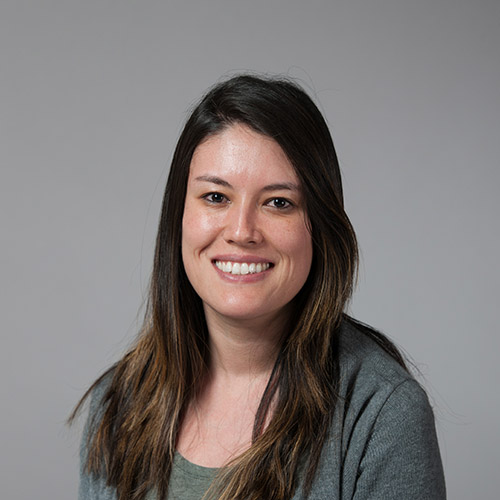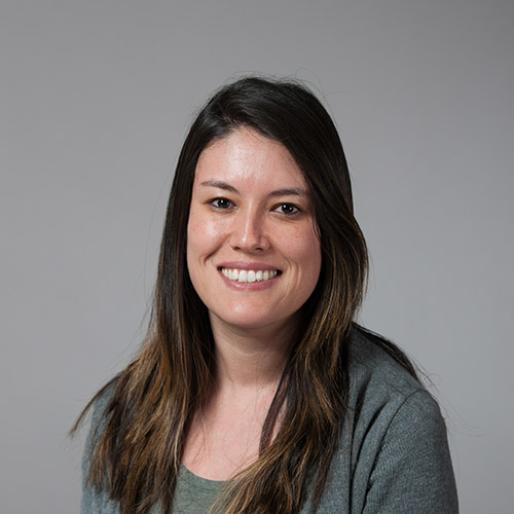The big picture: using wildflower strips for pest control
A young Rothamsted post-doctoral scientist has won funding for a research project that seeks to find new ways of fighting fungal disease in wheat using microbes. Vanessa Nessner Kavamura is one of 24 scientists who have had their projects chosen from over 600 proposals submitted for the Bayer 2021 Grants4Ag scheme.

“I was thrilled to have my project chosen!” said Kavamura. “As a postdoc scientist, it’s not often that we get to develop our own project, making this a great opportunity to develop my research ideas. Bayer offers a lot of support from its experienced team, and I hope I have some exciting results which could lead to additional future collaborations”.
The 24 proposals, designed to accelerate precision agriculture, reduce chemicals to enhance soil health or fight pests to preserve biodiversity, will receive grants (ranging from €5,000 to €15,000) to fund their projects. Bayer will also pair each winner with one of the company’s own scientists to provide guidance on each project as it progresses.
Dr Kavamura investigates the potentially useful chemical compounds produced by microbes to fight disease-causing organisms.
“Current conventional agriculture relies heavily on the use of agrochemicals such as fertilizers, fungicides, insecticides and pesticides,” she said. “However, microbes associated with plants can boost their growth and performance via different mechanisms. My research looks at how these microbes can suppress pathogens by the production of specific metabolites, competition for resources or stimulation of the host’s immune system. I am particularly interested in effective control measures for the wheat disease Fusarium head blight (FHB). Currently there are few commercial products available, and the use of biological control agents is a promising option.”
Bayer Grants4Ag provides both financial support and scientific guidance to develop their ideas to advance agriculture. For Bayer, those grants could end up as an investment in a larger, longer-term collaborations with the scientist.
“Ideas from this year’s winners represent all research and development areas in crop science,” says Phil Taylor, Open Innovation Lead for Bayer’s Crop Science Division. “We love the idea that, given support, these research proposals could develop into the next advancement that helps farmers.”
In partnership with Halo, a partnering platform for scientific innovation, Bayer received more than 600 proposals from 39 countries around the world during a five-week submission window this past fall. Bayer Grants4Ag awardees retain all intellectual property rights to their projects.
You can read Dr Kavamura’s Halo blog post about her work here.

Agricultural Microbiologist
Rothamsted Research is the longest-running agricultural research institute in the world. We work from gene to field with a proud history of ground-breaking
discoveries in areas as diverse as crop management, statistical interpretation and soil health. Our founders, in 1843, were the pioneers of modern
agriculture, and we are known for our imaginative science and our collaborative approach to developing innovative farm practice.
Through independent research, we make significant contributions to improving agri-food systems in the UK and internationally, with
economic impact estimated to exceed £3 bn in annual contribution to the UK economy. Our strength lies in our systems approach, which combines strategic research,
interdisciplinary teams and multiple partnerships.
Rothamsted is home to three unique National Bioscience Research Infrastructures which are open to researchers from all over the world:
The Long-Term Experiments,
Rothamsted Insect Survey and the
North Wyke Farm Platform.
We are strategically funded by the Biotechnology and Biological Sciences Research Council (BBSRC), with additional support from other national and
international funding streams, and from industry. We are also supported by the Lawes Agricultural Trust (LAT).
The Biotechnology and Biological Sciences Research Council is part of UK Research and Innovation, a non-departmental public body funded by a grant-in-aid
from the UK government.
BBSRC invests to push back the frontiers of biology and deliver a healthy, prosperous and sustainable future. Through our investments, we build and support a vibrant,
dynamic and inclusive community which delivers ground-breaking discoveries and develops bio-based solutions that contribute to tackling global challenges,
such as sustainable food production, climate change, and healthy ageing.
As part of UK Research and Innovation (UKRI), we not only play a pivotal role in fostering connections that enable the UK’s world-class research and innovation system
to flourish – we also have a responsibility to enable the creation of a research culture that is diverse, resilient, and engaged.
BBSRC proudly forges interdisciplinary collaborations where excellent bioscience has a fundamental role. We pioneer approaches that enhance the equality, diversity,
and inclusion of talent by investing in people, infrastructure, technologies, and partnerships on a global scale.
The Lawes Agricultural Trust, established in 1889 by Sir John Bennet Lawes, supports Rothamsted Research’s national and international agricultural science through the provision of land, facilities and funding. LAT, a charitable trust, owns the estates at Harpenden and Broom's Barn, including many of the buildings used by Rothamsted Research. LAT provides an annual research grant to the Director, accommodation for nearly 200 people, and support for fellowships for young scientists from developing countries. LAT also makes capital grants to help modernise facilities at Rothamsted, or invests in new buildings.